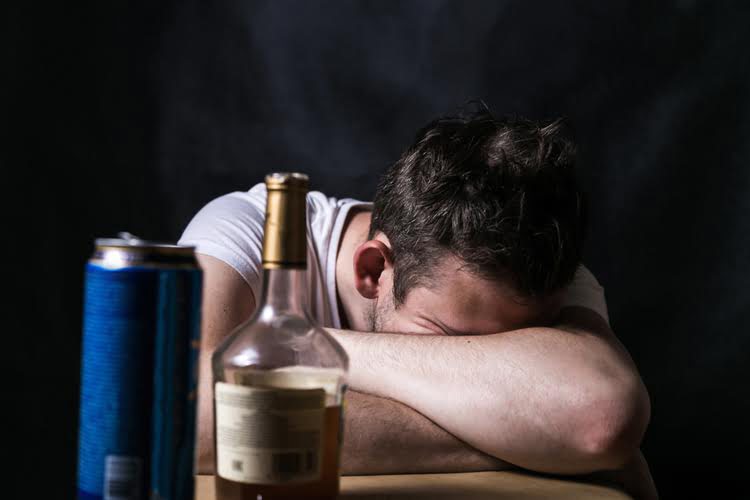The Role of Shame and Guilt in Addiction Recovery
Rather, these additional sources of assistance add extra layers of safety nets that can improve the odds of success during the addiction recovery process. You can learn to understand AND cope with guilt and shame after addiction. 10 practical steps on the psychological healing process during recovery from https://ecosoberhouse.com/ LCSW, LCADC, and CCS Kenneth Pecoraro here. Remember, the more your practice overcoming shame and other negative emotions, the easier it will get. If you’re feeling ashamed and alone, don’t let addiction have the final say. Reach out to Gateway today to receive help from a place and team you can trust.
Being truthful about your past could greatly improve the care that you are able to receive. It is equally as important that you are honest about your present situation as well. This is especially true if you have been having difficulties or have had a relapse. Although these things might be difficult to talk about, being honest about things like this can also improve the care that you receive. The next healing practice on our list is practising self-forgiveness. Although it may be easier said than done, this is a crucial step in addiction recovery.
Understanding Guilt and Shame in Addiction Recovery
I examine why I committed the act and determine I did it out of selfishness. I put my want for cigarettes above who could be affected. I would have been uncomfortable but I could have
survived it. I think back
through the many years of my life and recall a time when I stole something from
a store.

These can increase or perpetuate the feelings of shame during rehab. It is important to recognise and understand that these stereotypes are untrue. Forgetting about these false assumptions that people might have allows for you to focus all of your mental power on your addiction treatment and self-improvement. It also makes reaching out to people from your past to make amends much easier. Concerning drug addiction, guilt and shame are very important. A person may suffer from some childhood trauma and seek substances to ease the pain of guilt.
Strategies for Managing Guilt and Shame in Recovery
The first step to recovery from drug or alcohol addiction is getting sober. Up until this point, this article has been bad mouthing both guilt and shame. According to some therapists, guilt is a recovering addict’s greatest weapon. The list of things people do while under the influence of substances that could cause pain or embarrassment is endless. Shame and guilt are some of the most powerful emotions in a soul.
- 10 practical steps on the psychological healing process during recovery from LCSW, LCADC, and CCS Kenneth Pecoraro here.
- During trial, the defendant may acknowledge guilt for the crime committed.
- Up until this point, this article has been bad mouthing both guilt and shame.
- In the complex journey of addiction recovery, the guidance of trained professionals is an invaluable resource, especially when it comes to managing guilt and shame.
- This therapeutic approach can be an effective way to help individuals struggling with shame and guilt during addiction recovery.
When a person enters addiction treatment, they detox and then address the causes of their addiction through therapy and support groups. This helps them change their perceptions about themselves, and remove the negative emotions and thoughts that are driving the addiction. Shame and guilt can be difficult to process during recovery since, for the first time in a long while, the recovering addict is clear headed enough to look at their past actions. One reason why mindfulness meditation is so effective in addressing feelings of shame or guilt is because it helps individuals identify and confront their underlying triggers. Addiction often arises from an attempt to cope with shame, guilt or emotional pain.
Effective Coping Strategies for Shame and Guilt
Shame and guilt make recovery more difficult, so developing coping skills is a key step on the path to sobriety. Those in recovery must learn to forgive themselves and deal with their guilt positively, otherwise, the patterns of addiction may continue. Read on to learn how guilt and shame in recovery can derail the process, and how to combat these feelings to maintain your sobriety. With the right therapy, a person can potentially expel their shame, by understanding their guilt. One feels guilty by acknowledging that they had done something wrong.
Other people may be dealing with guilt and shame in addiction recovery because of what they did or did not do while abusing drugs. Taking an honest assessment of the damage they caused and the pain they inflicted during their addiction can be a difficult but essential step toward a better future. Seeing your shame for what it is will help you understand the severity of your actions. It’s likely that you’ll feel shameful for a human error, for a behaviour which has been controlled by an addictive stimulus, rather than yourself. To break away from shame, you must see your experience with drugs, alcohol or addiction as an illness, rather than a choice.
One unique aspect of DBT is that it emphasizes the dialectic between acceptance and change. Clients are encouraged to recognize that they can hold conflicting thoughts and feelings at the same time, such as accepting themselves despite their flaws while striving for self-improvement. Let’s dive into Professional Treatment Options for Shame and Guilt -because healing requires support beyond one’s own effort. Practicing Forgiveness Towards Oneself is a crucial aspect of addiction recovery that deserves attention. It involves exhibiting empathy, kindness, and compassion towards oneself despite past mistakes or shortcomings.
The focus of therapy is on helping clients build a life worth living, rather than fixating on past mistakes or shortcomings. Cognitive Behavioral Therapy (CBT) for Shame and Guilt is a widely recognized therapy approach used in addiction recovery to address feelings of guilt and shame. The CBT model proposes that thoughts, emotions, and behaviors are interconnected, and by changing one’s thinking patterns, emotional responses can be managed more appropriately. Self-Compassion and Self-Care Practices are essential tools that help individuals cope with shame and guilt during addiction recovery. These practices allow individuals to embrace self-love, kindness, and care while addressing negative emotions like shame and guilt. As a result of this obsession and compulsion, the addict
often does things that cause them guilt and shame.
Do Sapphires and Precious Gems Have a Valid Place in Mental Health Counselling?
This sense of belongingness makes it easier for individuals to come out of their shells and break out of the cycle of self-blame and guilt that often accompanies addiction. It’s important guilt and shame in recovery to note that while shame can be damaging, it also has an evolutionary purpose. Feeling ashamed of immoral or unethical behavior helps us conform to social norms and maintain social order.
- In fact, they were often overlooked as unproven methods of treating emotional distress in the past.
- Release feelings of guilt by talking about them, sharing, confessing, getting honest.
- It gets
you to see why you have the values that you have. - Engaging regularly in self-care activities helps prevent relapse during addiction recovery by helping one cope better with stressors and challenging emotions like shame and guilt.
- Without overcoming shame and guilt, there is a high probability that addiction diagnoses will remain, that your emotions will continue to fuel your behaviours.
- They often speak of the embarrassment of getting arrested and coming to prison yet again all due to not being able to leave their drug of choice alone.






